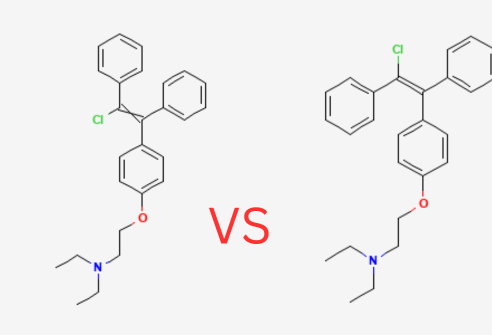While various lifestyle and medical factors can contribute to low testosterone levels, recent research suggests that genetics also play a significant role. Understanding the hereditary aspects of low testosterone can help men assess their risks and take proactive steps toward maintaining optimal hormone levels.

The Genetic Basis of Low Testosterone
Scientific advancements in genetics have revealed that low testosterone can be linked to inherited traits. Several genetic factors have been identified that may increase the likelihood of developing low testosterone:
1. Variations in the SHBG Gene
The Sex Hormone Binding Globulin (SHBG) gene plays a critical role in regulating testosterone levels in the bloodstream. Research has found that specific variations in the SHBG gene are strongly associated with low testosterone:
- Men carrying three or more particular genetic markers within this gene are nearly seven times more likely to have low testosterone compared to those without these markers.
- The SHBG gene variations influence how much testosterone remains biologically available in the body, as SHBG binds to testosterone and affects its activity.
2. Discovery of 141 New Genetic Loci Linked to Low Testosterone
A 2021 genome-wide association study (GWAS) identified 141 new genetic loci associated with low testosterone risk. These genetic markers may eventually be used to develop a genetic risk score, allowing for the identification of men who are predisposed to low testosterone before symptoms arise.
3. Evidence from Twin Studies
Twin studies have provided some of the strongest evidence supporting the hereditary nature of testosterone levels:
- Androgen expression (the process by which testosterone and other male hormones are produced and utilized) has been found to have a strong genetic component.
- Genetic variance estimates suggest that up to 57% of testosterone levels are heritable, meaning that more than half of the variation in testosterone levels among men may be due to genetic differences.
Genetic Conditions That Cause Low Testosterone
Beyond general genetic predisposition, certain inherited medical conditions can lead to male hypogonadism (clinically low testosterone levels). Some of the most well-known genetic disorders affecting testosterone production include:
1. Klinefelter’s Syndrome (XXY Syndrome)
- Men with Klinefelter’s syndrome have an extra X chromosome (XXY instead of the typical XY).
- This genetic condition often results in low testosterone, reduced muscle mass, smaller testicles, and infertility.
- It is one of the most common genetic causes of male hypogonadism, affecting 1 in 500 to 1 in 1,000 males.
2. Noonan Syndrome
- Noonan syndrome is caused by specific genetic mutations and can impact multiple bodily systems.
- It affects the secretion of sex hormones, often leading to low testosterone and delayed puberty in affected men.
3. Genetic Variants on the X Chromosome and SHBG Locus
A large-scale genome-wide association study (GWAS) found that genetic variants located on the X chromosome and the SHBG locus significantly influence testosterone levels:
- Since males inherit only one X chromosome from their mother, any genetic mutations or variations affecting testosterone production can have a significant impact.
- This study reinforced that genetic variation in the SHBG locus is associated with substantial differences in testosterone concentrations across populations.
The Role of Environmental and Lifestyle Factors
While genetics play a substantial role in testosterone levels, non-genetic factors also contribute to hormonal balance. Some of these factors include:
- Obesity: Excess body fat, particularly visceral fat, is known to lower testosterone by converting androgens into estrogen.
- Diabetes: Insulin resistance and diabetes have been linked to lower testosterone levels due to their impact on overall metabolic health.
- Medications: Certain drugs, such as opioids, corticosteroids, and anabolic steroids, can suppress natural testosterone production.
- Chronic Stress and Poor Sleep: Increased cortisol levels from stress and insufficient sleep can negatively affect testosterone levels.
Even if a man has genetic markers predisposing him to low testosterone, a healthy lifestyle can help mitigate or delay the onset of symptoms.
Genetic Markers vs. Development of Low Testosterone
One crucial takeaway from genetic studies is that having genetic markers linked to low testosterone does not guarantee that an individual will develop the condition. Instead, these markers indicate an increased risk or predisposition. Other factors, including environment, diet, exercise, and overall health, play a significant role in determining whether someone will experience clinically low testosterone levels.
Implications for Men Concerned About Low Testosterone
For men with a family history of low testosterone or hypogonadism, understanding genetic predisposition can be valuable. Some proactive steps include:
- Genetic Testing: If concerned, men can undergo genetic screening to identify potential risk factors.
- Regular Hormone Check-Ups: Men with a strong family history of low testosterone should consider routine blood tests to monitor their hormone levels over time.
- Lifestyle Interventions: Maintaining a healthy weight, engaging in regular exercise, managing stress, and getting adequate sleep can help support natural testosterone production.
- Early Medical Consultation: If symptoms such as low energy, reduced libido, muscle loss, or mood changes appear, consulting a healthcare provider early can help manage potential testosterone deficiencies before they become severe.
Conclusion
Recent research confirms that low testosterone can be hereditary, with several genetic factors contributing to an increased risk of developing the condition. Variations in the SHBG gene, genetic loci linked to testosterone regulation, and inherited conditions such as Klinefelter’s and Noonan syndrome all play a role in influencing testosterone levels.
However, while genetics account for a significant percentage of testosterone variance, they are not the sole determinant. Lifestyle, diet, medical conditions, and environmental factors all contribute to overall hormone health. Men with a family history of low testosterone should be proactive in monitoring their hormone levels and making lifestyle adjustments to optimize their testosterone production.
As scientific research advances, genetic screening and personalized medicine may provide more precise risk assessments and treatment strategies for men predisposed to low testosterone. For now, maintaining a healthy lifestyle and seeking early medical advice remain the best strategies for managing testosterone levels effectively.



